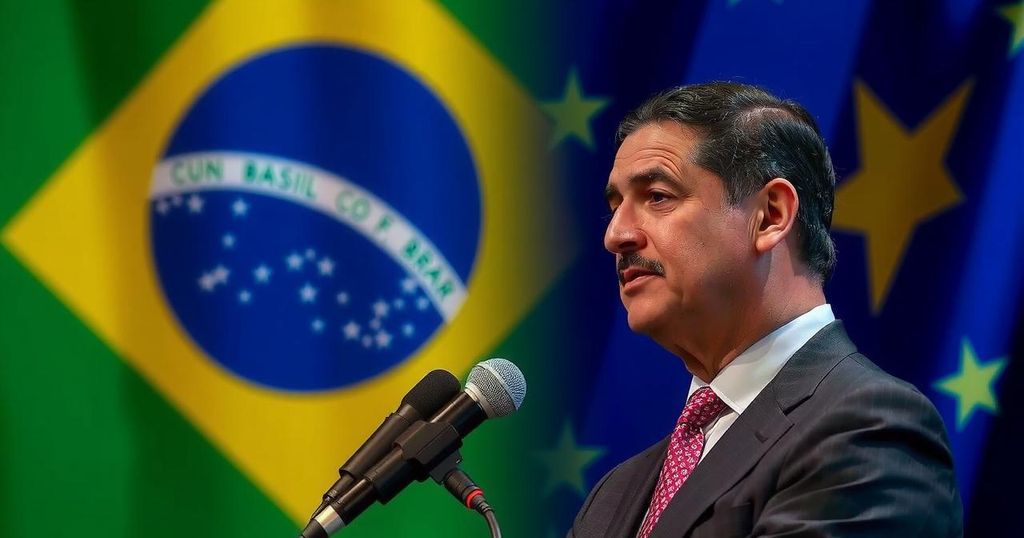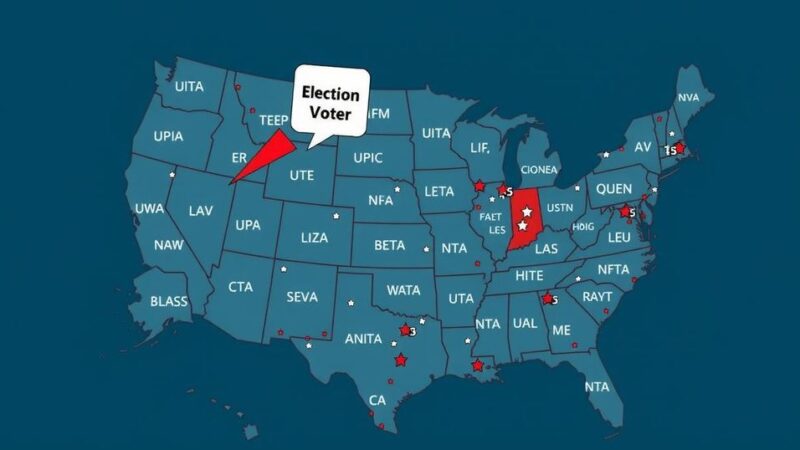Venezuela’s Foreign Ministry recalled its ambassador to Brazil after Brazil vetoed Venezuela’s BRICS membership application. The move reflects heightened tensions as President Maduro views Brazil as a key ally. The diplomatic rift is rooted in controversial electoral practices in Venezuela and criticisms from Brazilian officials regarding these actions.
On October 30, 2024, Venezuela’s Foreign Ministry announced the immediate recall of its ambassador to Brazil, Manuel Vadell, following Brazil’s veto of Venezuela’s application to join the BRICS group of emerging economies. The decision by the left-wing administration of President Luiz Inacio Lula da Silva has escalated tensions, as Venezuelan President Nicolas Maduro perceives Brazil as a pivotal ally. The recall was accompanied by a formal protest directed at Brazil’s charge d’affaires in Caracas. The Venezuelan government refrained from directly criticizing President Lula, who was absent from the recent BRICS summit in Russia due to a head injury. Instead, the Venezuelan Foreign Ministry condemned the action of Brazilian diplomats as “irrational,” claiming it contradicted the consensus of other BRICS members. The relations between Venezuela and several Latin American nations have deteriorated since the disputed election on July 18, with Maduro’s regime declaring him the victor despite lacking transparency in the electoral results. The opposition has contested this claim, asserting that their candidate, Edmundo Gonzalez Urrutia, won decisively. Brazil has withheld recognition of Maduro’s re-election pending a thorough review of the electoral results. Historically, President Lula was an ally of the late Hugo Chavez, Maduro’s predecessor, yet he has publicly criticized Maduro’s administration, labeling it a “very unpleasant regime” with “authoritarian tendencies.” The Venezuelan administration specifically targeted former Brazilian Foreign Minister Celso Amorim, advising the Brazilian government, who remarked that the veto stemmed from Venezuela’s failure to conduct transparent elections. Furthermore, the Venezuelan Foreign Ministry accused Amorim of acting as a “messenger of North American imperialism,” prompting the President of the Venezuelan parliament, Jorge Rodriguez, to call for him to be declared persona non grata.
The recent incidents between Venezuela and Brazil underscore the strained diplomatic relations and the impact of regional politics on their interactions. The ongoing political crisis in Venezuela, exacerbated by contested elections and human rights concerns, has resulted in increased scrutiny and criticism from neighboring countries, particularly those governed by administrations opposed to Maduro. Brazil’s role within BRICS, a bloc aimed at promoting cooperation among emerging economies, places it in a position where its decisions can significantly influence the geopolitical landscape of South America. The historical relationship between Lula and Chavez has created expectations for continued solidarity, thus intensifying the consequences of Brazil’s recent actions.
The recall of Venezuela’s ambassador from Brazil marks a significant escalation in diplomatic tensions following the Brazilian government’s veto of Venezuela’s BRICS membership application. This incident highlights the ongoing challenges faced by the Maduro administration amid regional disapproval, particularly surrounding electoral legitimacy. With Brazil under Lula’s leadership distancing itself from Maduro’s regime, the future of Venezuelan-Brazilian relations looks precarious, potentially impacting larger geopolitical dynamics in Latin America.
Original Source: www.thehindu.com






